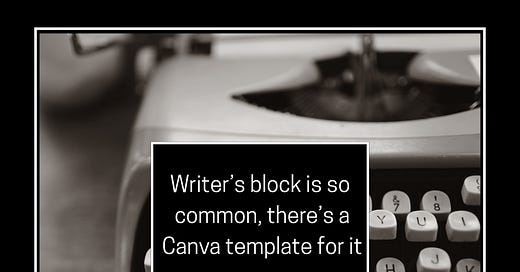Recently, I was watching a TikTok Live with a young writer who said that they were suffering from writer’s block, and I just felt so bad for her. We’ve all been there: You need to write something and your brain just doesn’t want to cooperate. Perhaps you’re not inspired or overwhelmed by everything in your life (or the world) or intimidated by what you’ve taken on. And it always seems worse when a deadline is close.
The simplest piece of advice I have for times like this is just to start writing, even if what you produce is awful. If your writer brain won’t cooperate, perhaps your editor brain will. And you can’t employ the editor brain if there’s no words to edit.
My other solution is, of course, organizing. And this can even help to prevent writer’s block from taking over in the middle of a project.
Old-school outlines
Think back to when you were in grade school and had to write an outline for an essay. It looked something like this:
Introduction
Topic 1
Point 1
Point 2
Topic 2
Point 1
Point 2
Topic 3
Point 1
Point 2
Conclusion
This outline is formulaic and not particularly useful in forums other than early writing classes, but the idea, that you should organize your ideas before you put them to paper (or screen), is a pretty good one.
When I was writing more frequently (running a magazine doesn’t leave a ton of time for writing these days), I would often start with an outline, particularly for bigger writing projects. And I would get very detailed. My story outline might look more like this:
Lede
Color from reporting
Awesome quote
Nut graf
Background section
Summary of history
Another awesome quote
Quote from someone who disagrees
Important research paper
Where we are now
Paper 1
Paper 2
More quotes
And so on…
I would often get very detailed, even writing bits of my story and plopping them in place, especially when I was particularly inspired.
Working like this has some advantages: You can quickly see where you might have holes in your reporting or research or story. If you are creating this in Scrivener (my favorite tool for organizing big writing assignments or projects), you can link all your research to your outline. And you have a roadmap when you start writing. (Just be prepared to make changes as you go, since plans often don’t entirely work out in real life.)
For me, this often helped negate writer’s block entirely. My brain knew the path. It just needed to fill in pieces, rather than come up with everything from the start. And if I did experience writer’s block in one section, well, I could move on to another and hopefully be able to write that.
The Systematic Scribe is free. I have no current plans to have paid subscriptions — but if you like what you read and would like to support this work, you can Buy Me a Coffee.
And when there’s no outline
My brain thrives on organization, so outlines and plans work for me. But outlines aren’t for everyone. So if you’re that kind of person, what can you do when writer’s block hits? There’s procrasti-cleaning and procrasti-baking. Maybe it’s time for procrasti-organizing.
What this looks like will be different for everyone. Maybe you’re starting a new novel, like the writer on that TikTok Live. You could list out all your characters and write little backstories for each of them. Or perhaps you could map out the journey your main character will take, whether that’s a physical journey or other type.
Or if you had done interviews for your project, you could review them again and make sure you pulled out the best quotes. Maybe you realize that your feature story has no structure and you take the time to develop that before your editor calls you on it. (I might be speaking from experience on that one.) You could make an outline.
Whatever you end up doing, it gets you closer to your end goal. And maybe it provides the spark that gets you over the hump. But it at least means you’ve made some progress, even if it’s not the progress you had hoped for when you woke up that morning.
— Sarah
P.S. If you’ve got a question, comment or idea for a future newsletter, please email me at sciwriter.sarah@gmail.com. If you have a problem you’d like help with or have advice to share with your fellow writers, you can submit this through this Google Form.
And if someone forwarded this to you (hint, hint), check out the archive to see what you can expect from The Systematic Scribe. Plus, this post has my FREE Airtable template for running a freelance writing/editing business.




